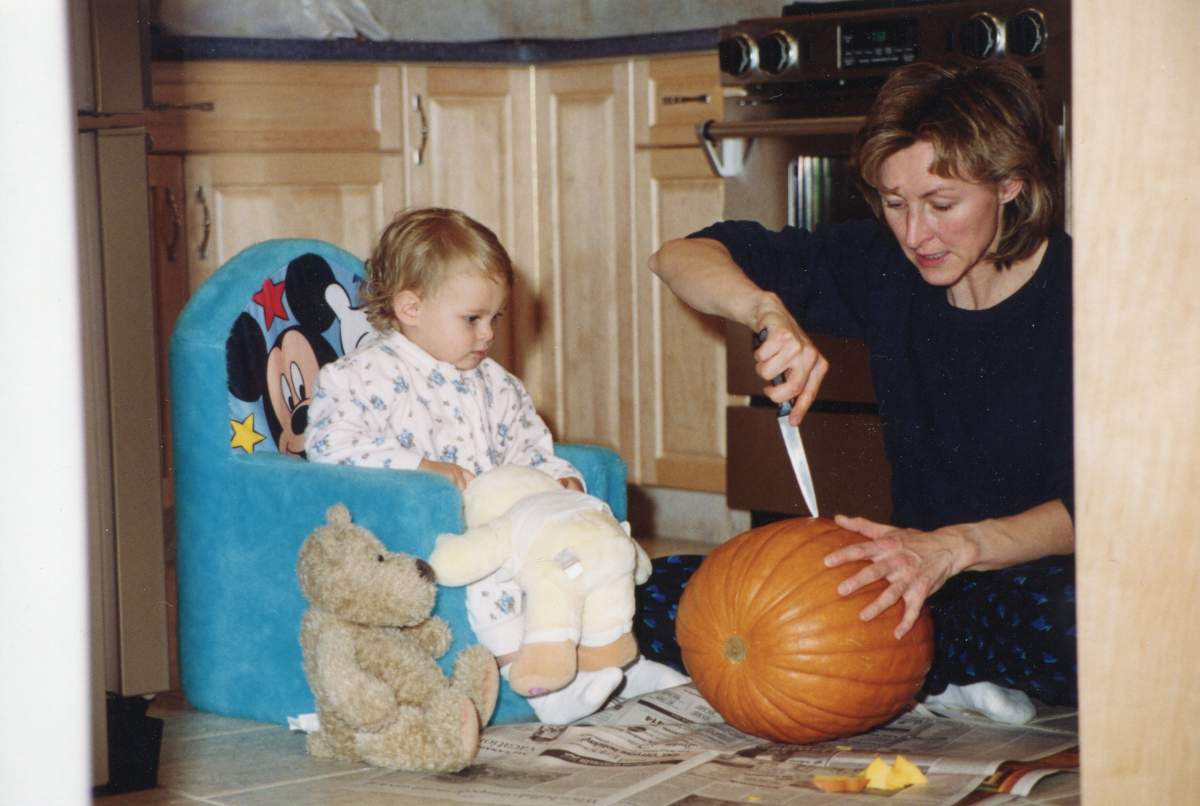When Linda Salloum was just 54 years old, she was diagnosed with early-onset dementia.
“She was kind, thoughtful, considerate and very intelligent,” her husband, David Salloum, recalled.
“I thought I really lucked out in terms of having Linda as my wife, because she had all the qualities you’d want in a wife and a mother.”
Her daughters were only 11 and 14 at the time she was diagnosed.
Linda Salloum’s with one of her daughters, who was young when the 54-year-old was diagnosed with early-onset dementia.
Courtesy: Dave Salloum
Linda was the first to notice something was wrong. David said once they had a formal diagnosis, it helped him understand the subtle changes he’d seen in her years before.
“When we got the diagnosis, I thought back to things she had done two or three years earlier and realized, OK, that’s why she did that,” he said.
“But without that knowledge, it was very disturbing, very distressing for us to see her do certain things.”
Dave is sharing his wife’s story as the University of Alberta Hospital Foundation launches a new initiative called Dementia Care Pathways.
The project is designed to streamline the system and close critical gaps in care for patients and their families. It will focus on three pillars: a new clinical care pathway, a provincial patient registry and social health navigation tools.
Researchers told Global News the focus will be on early diagnosis, coordinated care and real-world support.
“I think the goal of the adventure pathways project is to see a route for patients, their care partners and for primary care providers to see the way of delivering higher quality care for people with memory problems and cognitive impairment,” Dr. Adrian Wagg told Global News.
“I think, with this project is it’s primary care-focused, it’s end-user-focused and it’s more than just one hospital or one institution.”
The project is expected to cost $3.1 million, half of which has already been funded by the University Hospital Foundation. With a $1 million grant from the provincial government, the organization has already raised about half of what’s needed.
“Most often you go in, you will see your physician, you’ll get your care plan but then you go home, and it is the community that you rely on,” Dr. Jodi Abbott, president and CEO of the University Hospital Foundation said.
“How do we get the services in place to surround people?”
“I hear from people living with dementia and their care partners that they often feel very much alone in their efforts to keep going on with everyday life with the changes that dementia brings,” Dr. Holly Symonds-Brown, Dementia Care Pathways Co-lead said.
“This project is about listening to people living with dementia, caregivers and families about what works well, what’s difficult and then co-designing solutions with them.”
For Dave Salloum, the initiative comes too late to change Linda’s journey, but he believes it could make a world of difference for others.
“I think it would have given us a bit more time to get prepared for it,” he said.
While the project isn’t a cure, the organization behind it said it’s about funding hope and giving families the tools and support they need when faced with a difficult diagnosis.
Dr. Adrian Wagg and Dr. Holly Symonds-Brown will pilot the project at the Kaye Edmonton Clinic in Edmonton and the McLeod River Primary Care Network that has offices in Whitecourt, Edson, Mayerthorpe and Fox Creek. The project is currently in the design phase and expects to see patients in year two.
To learn more about the Dementia Care Pathways project or to donate, visit the University Hospital Foundation website.
Families looking for dementia resources can also find support through the Alzheimer Society of Alberta and Northwest Territories.
